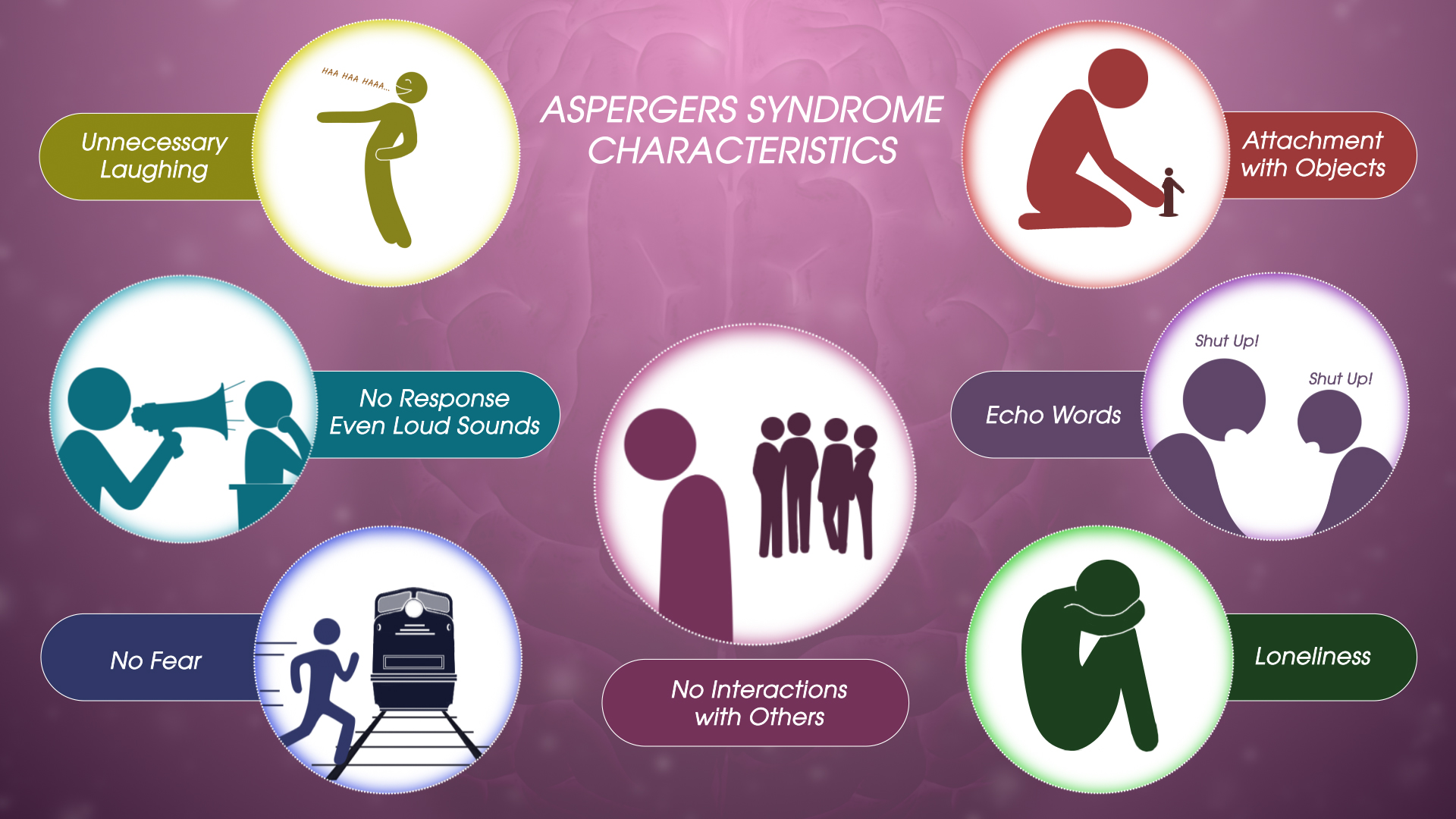Asperger syndrome is a neurological-developmental disorder which affects a person’s behaviour, use of language and communication and social interaction. A person suffering from this syndrome tends to have an obsessive focus on one topic and is likely to perform the same behaviour repeatedly. Asperger syndrome is a part of a broader category of disorder which is called autism spectrum disorder. It is five times more likely to affect boys than girls.
Symptoms
The social and behavioural symptoms of Asperger Syndrome begin as early as infancy. But most cases are identified when the child is at school going age. Most common signs and symptoms in people diagnosed with Asperger Syndrome are :
- Either avoiding eye contact or staring too intently
- Lack of interest in socialising
- Difficulty in making friends
- Lack of changing facial expressions
- Inability to infer the feelings, thoughts and emotions of others
- Unusually sensitive to noises, taste, odours, touch and visual stimuli
- Inflexible and dependent on routines
- Inability to infer the feelings, thoughts and emotions of others
- Repetitive motor patterns
- Repetitive and intense interests
- Dislike change
Causes
The exact cause of asperger is not known. It is largely an inherited disorder. Environmental factors also play an important role, such as problems in pregnancy and birth, toxic exposures and prenatal infections. These environmental factors may increase the severity of the underlying defect in genes.
Treatment
A multidisciplinary approach is usually adopted for the treatment of asperger syndrome. Medicines can be prescribed to help control the symptoms of asperger syndrome but they are not sufficient to treat the condition itself usually. A number of behavioral therapies and educational interventions are often used to help people suffering from this condition. The therapies depend on the need and age of the person. The most common therapies are :
- Difficulty in making friends
- Lack of changing facial expressions
- Inability to infer the feelings, thoughts and emotions of others
- Unusually sensitive to noises, taste, odours, touch and visual stimuli
- Inflexible and dependent on routines
Treatment can usually improve the long term outlook for people suffering from asperger syndrome. When behavioral, educational and social support is provided, people suffering from this condition can often control the social and communication challenges they face and can lead happier and more productive lives.
Disclaimer: The information in no way constitutes, or should be construed as medical advice. The above article is neither an endorsement of any research findings discussed in the article nor an endorsement for any of the source publications.









